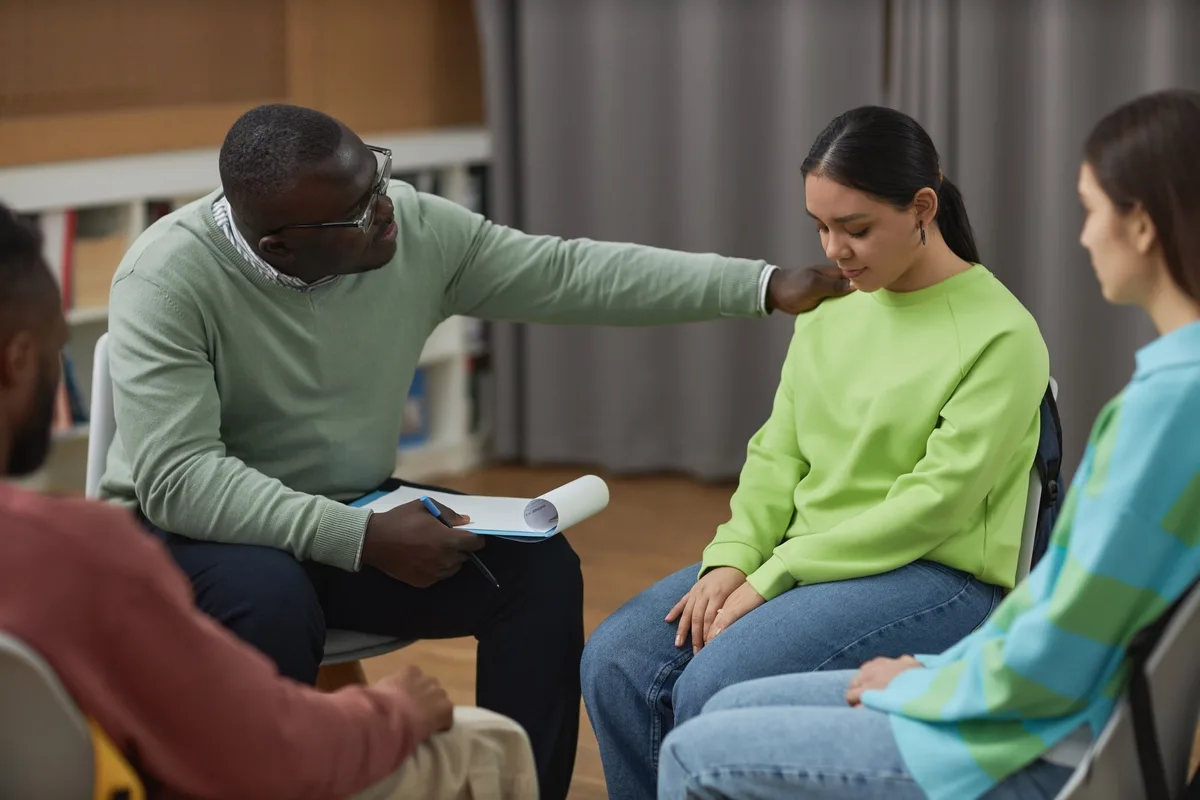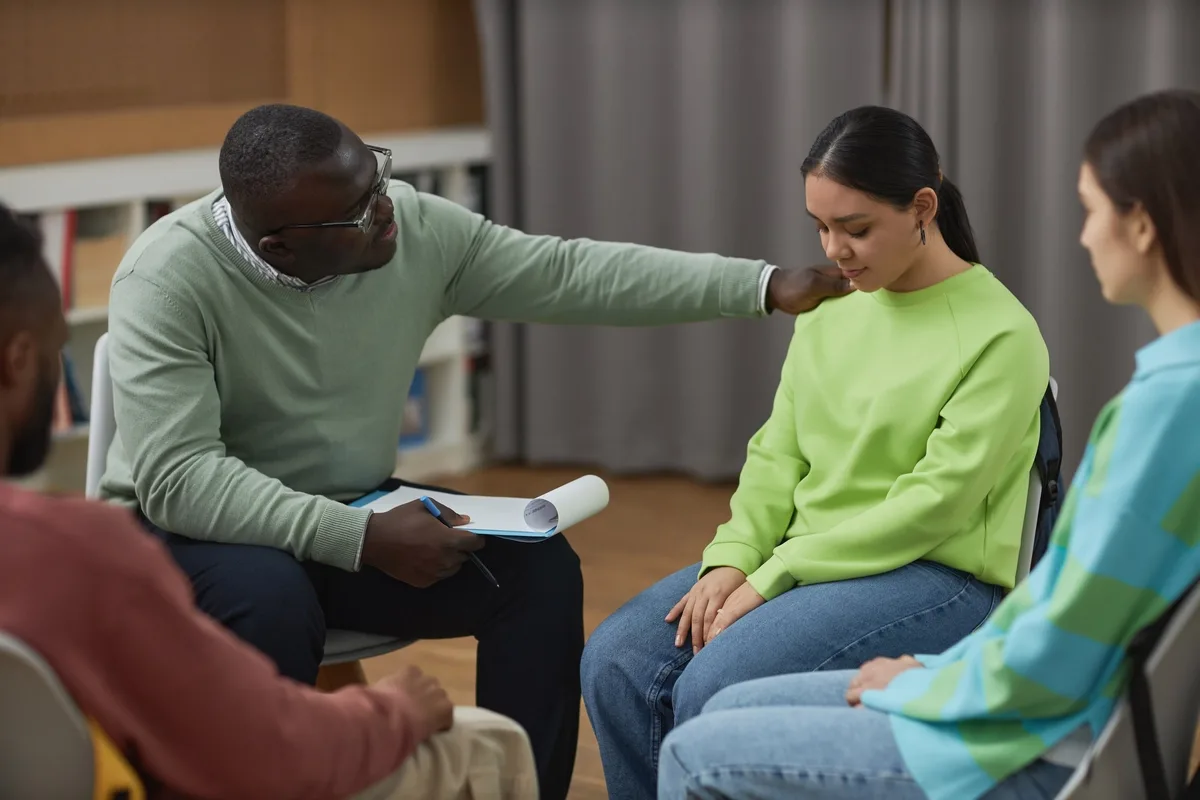24/7 Helpline:
(866) 899-221924/7 Helpline:
(866) 899-2219
Learn more about Aftercare Support centers in Lanexa
Aftercare Support in Other Cities

Other Insurance Options

Magellan Health

Humana

BlueShield

UMR

Optum

Health Net

Providence

Regence

Choice Care Network

WellCare Health Plans

GEHA

United Health Care

Molina Healthcare

WellPoint

American Behavioral

Horizon Healthcare Service

Ceridian

Meritain

Group Health Incorporated

Covered California















